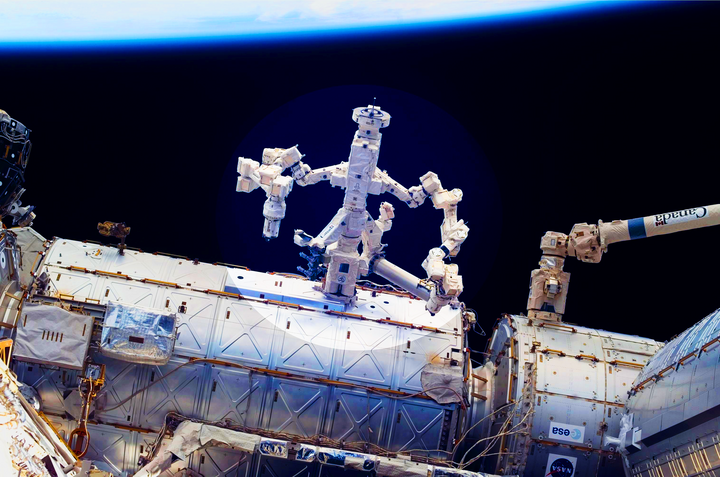Remote space medicine has been a hot topic in recent years, as space agencies and private space companies plan for future crewed space exploration . NASA’s Artemis program, for example, hopes to return humans to the south pole of the Moon by 2026, which is believed to pave the way for humanity to one day freely travel to Mars.
To ensure the safety of astronauts in space, medical treatment there must achieve the same advancement as on Earth.

The Cygnus cargo ship will carry miniature surgical robots that can be controlled from Earth to experiment with simulated surgery in space. (Illustration: Wikipedia)
On January 30, an innovative experimental technology product will be delivered to the International Space Station (ISS) by the multinational aerospace company Northrop Grumman’s Cygnus cargo spacecraft. If all goes according to plan, the device will arrive at the ISS on February 1.
The device, called MIRA (short for Miniaturized In-vivo Robotic Assistant), is a surgical robot weighing about 2 pounds, about the length of a human forearm, with two highly flexible arms that can manipulate forceps and scissors. The robot uses two hands to grasp components to cut the surgical simulation and apply tension to determine where and how to cut.
This surgical robot is a product of the company Virtual Incision, built to be sent into space to conduct simulation experiments; hopefully one day it can communicate with doctors on Earth when operating on astronauts in space, with the highest possible precision.
On the ISS, MIRA will be placed in a special test chamber where it will cut stretched rubber bands and medical pushers in a gesture that simulates surgery in low gravity. The data collected through these test operations will be cross-referenced with similar experiments on Earth, where gravity is normal.
HUYNH DUNG (Source: Space/Cybernews)
Source




















































![[Maritime News] More than 80% of global container shipping capacity is in the hands of MSC and major shipping alliances](https://vphoto.vietnam.vn/thumb/402x226/vietnam/resource/IMAGE/2025/7/16/6b4d586c984b4cbf8c5680352b9eaeb0)













































Comment (0)